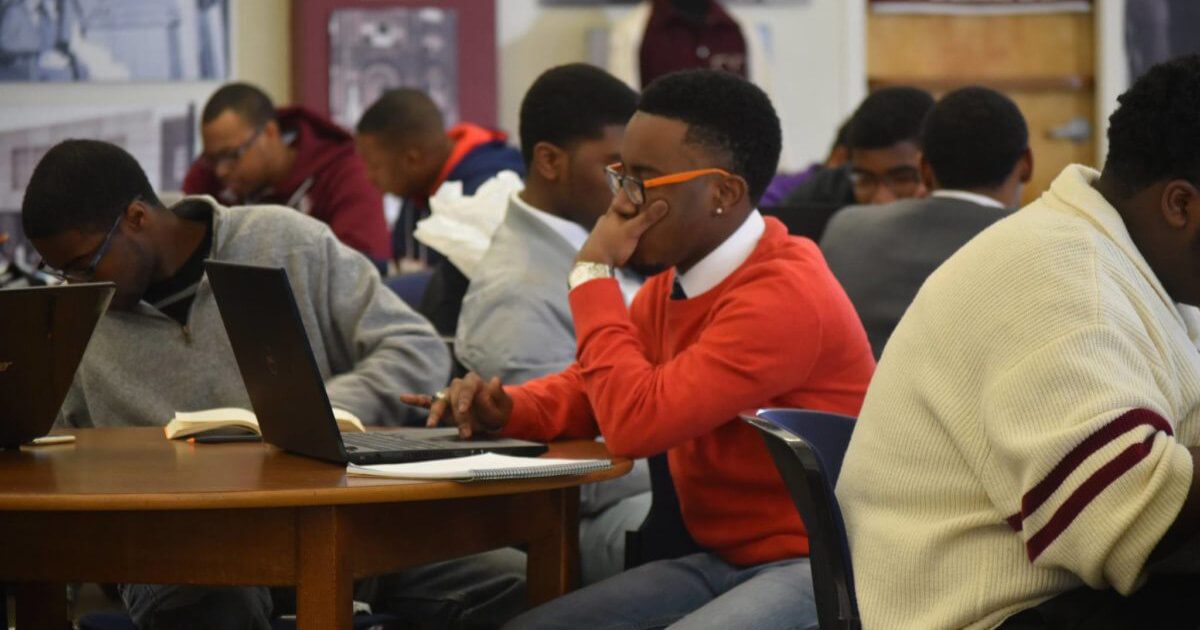Students entering their freshman year at Clark Atlanta University, Spelman College, Morehouse College, and Morehouse School of Medicine, will be among the first to get a shot at piloting the Atlanta University Center Consortium’s forthcoming data science program slated to launch in fall of 2020.
Powered by a five-year $8.2 million grant from UnitedHealth, the AUC initiative aims to create a pipeline of future Black data scientists ready for industry. Integral to the efforts to increase Black professionals employed within the technology industry, data specializations (fueling the top 15 in-demand jobs in America) are among a set of unique skills companies like UnitedHealth hope to build as they increase employment efforts and look to tap more diverse talent.
Ramping Up Representation
It’s a tall order for any university to add a new curriculum and credentialing into its academic offerings, but with less than a year left to deliver on its promise, the AUC Consortium is quickly aiming to address a few key priorities to get ready for their first fall cohort. According to Todd Greene, executive director of the AUC Consortium, next year’s programming will commence with a slew of introductory data courses that will expose students from a variety of majors to the basics of data analysis, programming languages, and how to extract value from data. No prerequisites will be required. Ideally, Greene shares, these courses would launch across all four institutions starting at the undergraduate level before being introduced within graduate curriculum.
Incoming freshmen interested in learning data science would participate via a bridge program that would onboard them into a certificate or minor to help credential their skills and provide bragging rights on their resumes.
The relationship with UnitedHealth notwithstanding, the AUC Consortium’s data science initiative has yet to select a formal leader to design and set the strategy for the forthcoming initiative, an immediate role Greene says his leadership team is actively working to fill. As of now, Greene nor executives at UnitedHealth have shared how many students they plan to serve with the data science program over the five-year window of the grant. However, with the goal to touch all four schools at once, Greene hopes that the new program will set the stage for supporting similar efforts at HBCUs looking to build data science programming on their campuses as well.
Gaining Ground
While the AUC program might be the largest HBCU data science initiative supported by a hefty corporate grant, the quest to advance Black professionals with advanced data skills has been ramping up at universities and within the industry as a whole.
North Carolina Central University has been quietly introducing data science fundamentals to its computer science and even business students since Rebecca Fernandez, an analytics manager at Amazon’s Prime Video, turned a recruiting trip into a chance visit to Central’s campus back in 2017. She’d been nearly 10 miles away from the Durham campus at a recruiting event when she realized there wasn’t any representation from local HBCUs.Though Amazon has not formally established a partnership with the school, Fernandez says she has been working with the dean’s office at the school of business every semester since February 2018 and has taught basic data analytics to at least 65 students across three separate courses.
During my visits, I usually try to bring a couple of coworkers and we spend a few days on campus in a variety of sessions ‚Äî resume reviews, whiteboard interview practice, AMA, Panels, etc. I meet with their faculty to talk about the curriculum and what industry standards they should know about. I’ve also presented to their Board of Trustees on the work we’ve done and had the director of marketing spend a week with me on Amazon’s campus. In July 2019, blackcompute HER launched its Data Science Executives initiative, funded by a Tech Done Right! grant out of the Kapor Center.
The initiative offers a network of professional Black women who desire to build their data science acuity through professional development activities. Dr. Brandeis Marshall, who serves on the leadership team for blackcomputeHER, shares that the vast majority of its members have primary domain expertise in science, engineering, and/or computing (and are not engaged in the data science field). So far, the initiative has garnered nearly 60 members in their data science learning community.
Last year, Prairie View A&M University and Texas Southern University received support from the National Science Foundation to work together using big data analytics on a joint research study on the oil and gas industry to develop a deep learning software package.
Ramping up the Pipeline
As curriculum expands for HBCU students at colleges competitively matching academics and partnerships for the jobs of the future, additional support from organizations like Data for Black Lives, Black in AI, Opportunity Hub, the National Society of Black Engineers, and others continue to be a meeting ground for professionals of all backgrounds to advance their skills and build a network that will ultimately help them establish and increase their career prospects.








